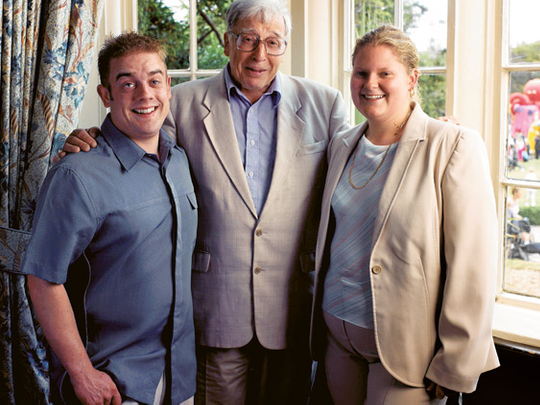
Dubai: A clinic where the world's first in vitro fertilisation (IVF) child was conceived, will be setting up a facility in Dubai.
The UK-based Bourn Hall which is setting up a advanced clinic in Dubai is looking to fill in the gap for quality IVF treatment, offering hope to couples facing fertility issues in the region.
Stefanos Fotiadis, Managing Director of Bourn Hall (Middle East and North Africa), told XPRESS that a 20,000 square foot, state-of-the-art IVF facility, which will be set up by May 2011, will have the capacity to treat around 2,000 couples a year. "One in six couples experiences problems conceiving in the UAE," he said.
"While the rate of babies born globally through IVF treatment is three per cent, the percentage in the UAE is far lower," Fotiadis said, noting that they will cater to Emiratis and other residents.
According to him, the Dubai clinic will offer Bourn Hall's Nobel Prize-winning science with 30 years of experience in IVF. Just two weeks ago, the wife and five daughters of the late Professor Robert Edwards, the father of IVF and co-founder of Bourn Hall, collected the Nobel Prize on his behalf in Stockholm. Edwards along with physician Patrick Steptoe had pioneered conception through IVF, which led to the birth of the world's first test-tube baby Louise Brown in July 1978.
According to UN statistics, the UAE's fertility rate has more than halved in the past 30 years. Births are said to have dropped from 5.2 per woman in 1980-1985 to 1.9 in the last five years.
Fotiadis said a large number of couples in the region currently travel abroad for IVF treatment. "The Dubai clinic will check this trend," he said, adding that it will provide a series of fertility-related treatments to stimulate and assist pregnancies, in addition to techniques like IUI (intra-uterine insemination) and IVF in a "sanctuary environment". This would cover consultations, tests, medications and the core treatment which in the case of IVF includes collection of eggs and sperms, their fertilisation and the eventual implantation of the embryo into the woman's womb.
Fotiadis declined to put a figure on the cost. "It will be on a par with market rates," he said.












